With the septuagenarian separatist dying of Covid-19 in a Jammu jail, hundreds of families are worried across Kashmir. Now the political class has requested Prime Minister Narendra Modi to send them home on parole, reports Saima Bhat
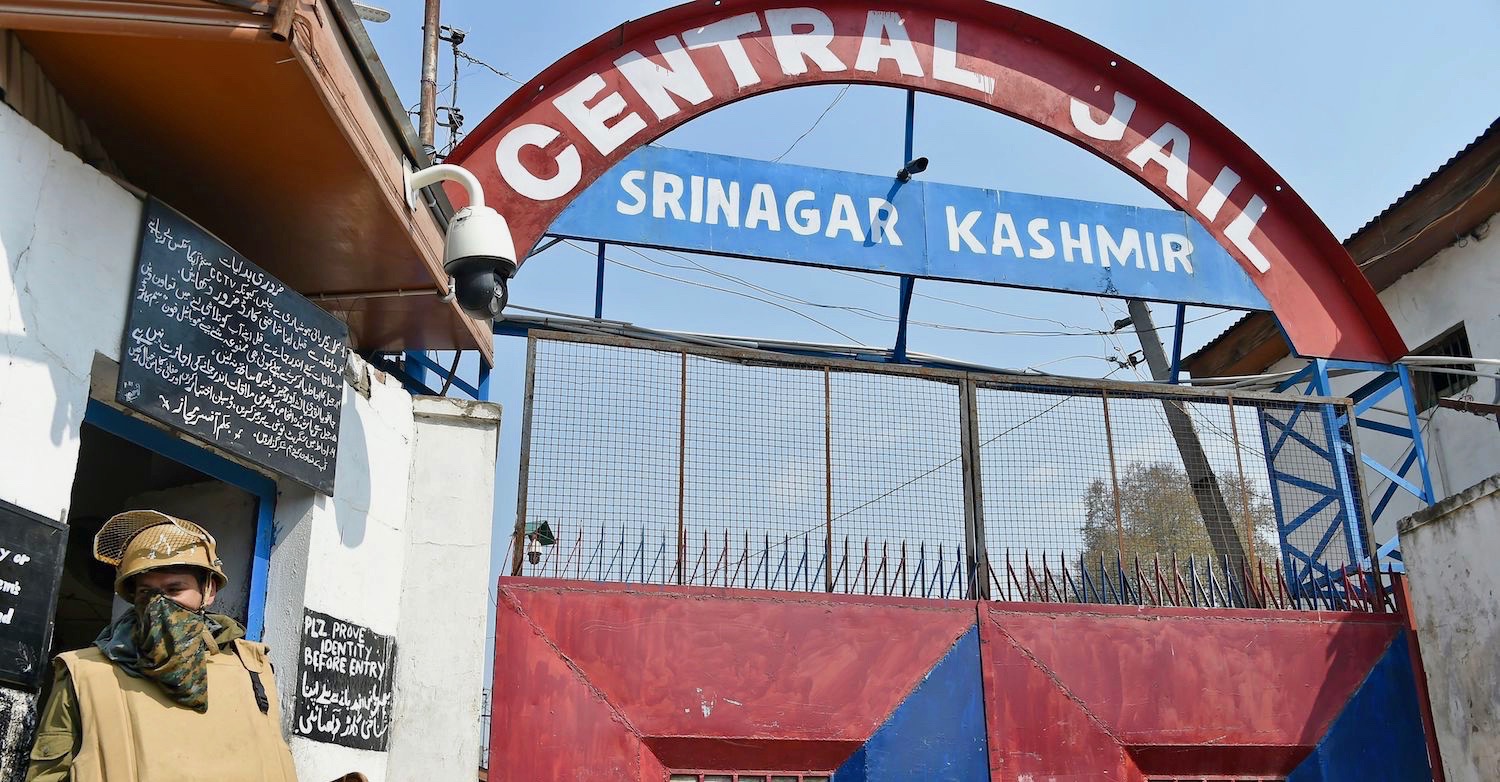
Famous among separatists for his “flawless” oration, Muhammad Ashraf Khan, Sehrai, 77, languishing under Jammu and Kashmir Public Safety Act (PSA) in Udhampur jail, is dead.
On May 4, when Mujahid Ashraf Khan, his son, received a call from jail authorities about the deteriorating health of his father and asking him to come over to Jammu, he would have never imagined that he would return with his father’s coffin.
That day, Sehrai had been admitted to a government hospital in Udhampur with multiple ailments. A day later, however, his oxygen levels dropped, deteriorating his condition further. He was also tested for Covid19 positive and it initially was negative. Post-death, authorities declared him Covid19 “positive”.
“He told us several times in the last few months during his two phone calls a week that he was not getting proper medical treatment,” his son told reporters. “We moved to a court on April 16 with a petition seeking proper medical assistance for him but the court was yet to review it.”
Sehraie’s death has triggered allegations in Kashmir that he was left unattended in prison till his condition deteriorated. His burial was restricted to a few relatives at Tekipora village and police did insist they had to follow the Covid19 protocol.
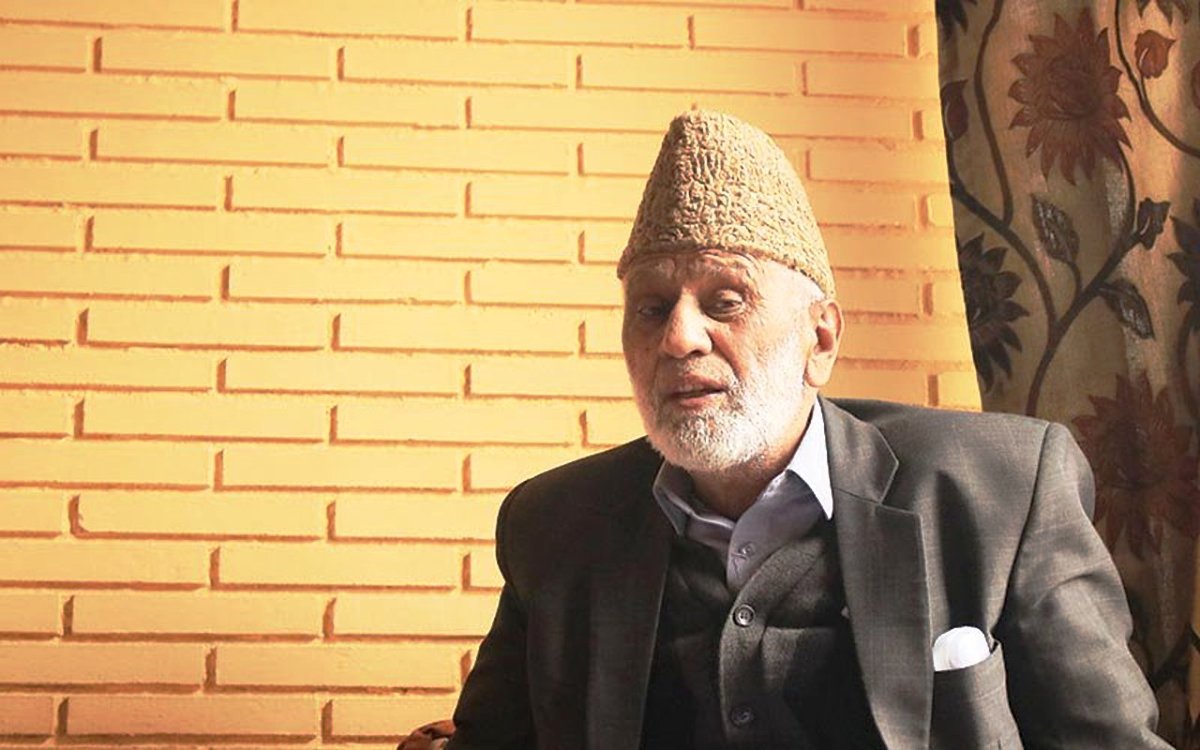
After Sehrai’s death, the families of all prisoners held in different jails within and outside Jammu and Kashmir, say they are having sleepless nights. Contagion is everywhere, they say.
Moments after Sehrai’s death, Ahmed Bin Qasim, son of hardcore separatist Syeda Asiya Andrabi, who is in Tihar jail for more than three years now, tweeted: “Now the news is coming from Tihar Jail. A woman inmate has died due to the COVID-19. 57 out of a total of 444 women inmates lodged in Jail No 6 of Tihar have tested Covid-19 positive. This is the same section of the jail where 4 Kashmiri women are kept, including Amma.”
Ever since the Covid19 marked its presence in India in March 2020, many families have petitioned courts with bail applications for parole. Not many orders have come.
A Frontline Worker
“If you visit my home, you won’t find any mirror. All of them are broken.” Dr Bilquies Shah talks about her youngest daughter who “once in a day sees her father in the mirrors or in the open air and then sees him calling with open arms to hug him. When I tell her he is not around, she breaks down. She shouts. She cries. It happens at least once every day!”
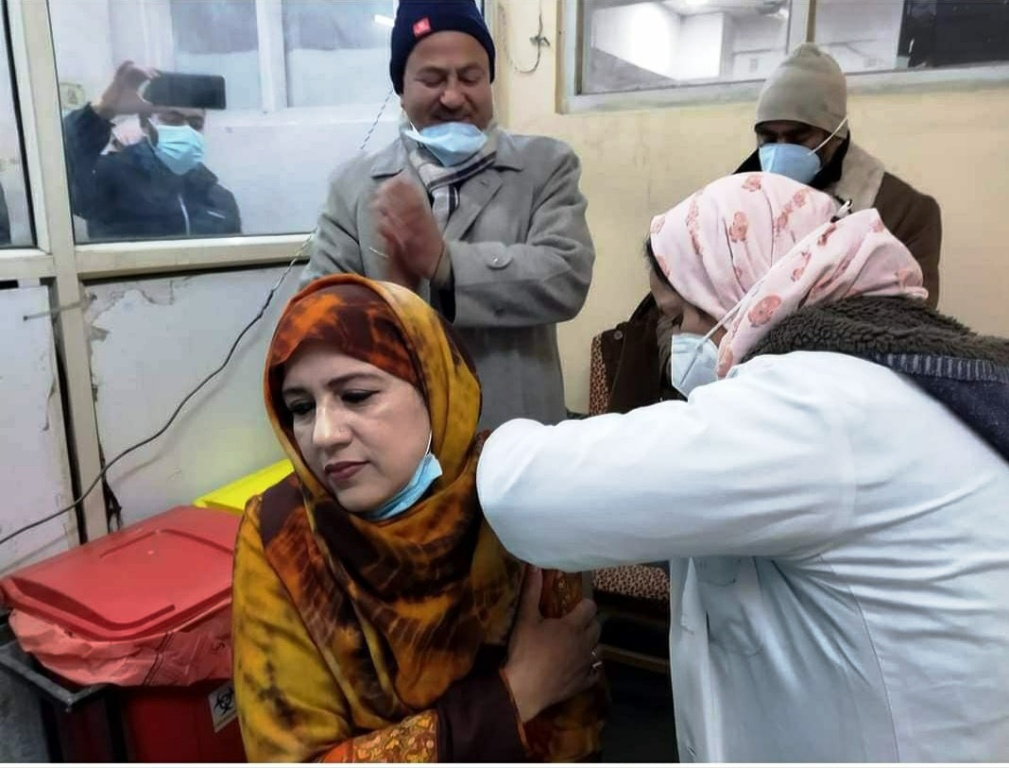
Dr Bilquies, is Shabir Shah’s wife, who at 65 has been in jail for 35 years in jail. The doctor is having a difficult time managing her daughter and the fight against the Covid-19 as a key executive at the Jawahar Lal Nehru Memorial Hospital at Rainawari – normally a 9 am – 9 pm job that usually extends at 12 night. There is only one thing that she can not afford to miss – a phone call from Delhi. “It is hardly a 3 or 4 minutes call which I cannot afford to miss. It comes either once a week or a fortnight.”
Family visits to prisoners stopped in the March 2020 lockdown. Resumed briefly, the ban is back. “Last time I remember we met on February 15, 2020,” she said. “Since then there are phone calls only.”
At her hospital, she is aware of the protocol, she preaches. “We keep on telling people that you should maintain distance, frequent hand washing is necessary and then the people with co-morbidities are at higher risk.” Dr Bilquies said, “But then I think of my husband in an overcrowded Tihar where there are no such possibilities, no hygiene, no adequate food to supplement the immune system. My husband has diabetes, hypertension, cardiac disease, and arthritis.” He had managed part of the
Last year when the Tihar Jail superintendent and many prisoners this desperate doctor moved the court seeking Shah’s transfer to home jails in Jammu and Kashmir. “The case was portrayed as if I demanded a separate cell for my husband and then the application was disposed off,” she said. “Don’t we know they are already in 6/6 separate cells?” Covid-19 patients require15 litre per minute Oxygen but Delhi state cannot provide concentrators beyond 5 LPM.
“We are not demanding his release but at least he should be shifted to a place, which is not overcrowded,” the doctor demanded. His daughter, Sehar tweeted: “Tihar is a very congested jail. There are more than five reported deaths and more than 2,000 inmates have tested positive. Social distancing and isolation are a major problem.” Sehar Shabir, daughter of Shabir Shah tweeted.
Earlier, in a letter addressed to Home Minister, Amit Shah, the daughters of Mirwaiz Umar Farooq’s spokesman, Shahid-ul-Islam, sought the transfer of her father’s detention.
“Our father has tested positive for the deadly COVID-19 and his condition has deteriorated due to co-morbidities, including acute diabetes,” the joint letter by sisters, Shahid-Suzain Shah, 18, and Sundas Shah, 14 said. “We have no contact with him. We don’t even know if he is alive. Mr Sehrai’s death has left us even more worried about the well-being of our beloved father. Our father has always worked for a peaceful resolution of the Kashmir issue. We request his release.”,
Too Many Prisoners
Kashmir always had a fair presence in jails, especially since 1989. However, post-August 5, 2019, the numbers have improved. MHA details indicate the number at around 7357. Subsequently, most of them were bailed out or set free. However, in February, G Kishan Reddy, the Junior Home Minister said 183 persons are still detained under the PSA. But there are people in jail on charges not covered under PSA. Under PSA, reports said around 100 or more are still in custody.
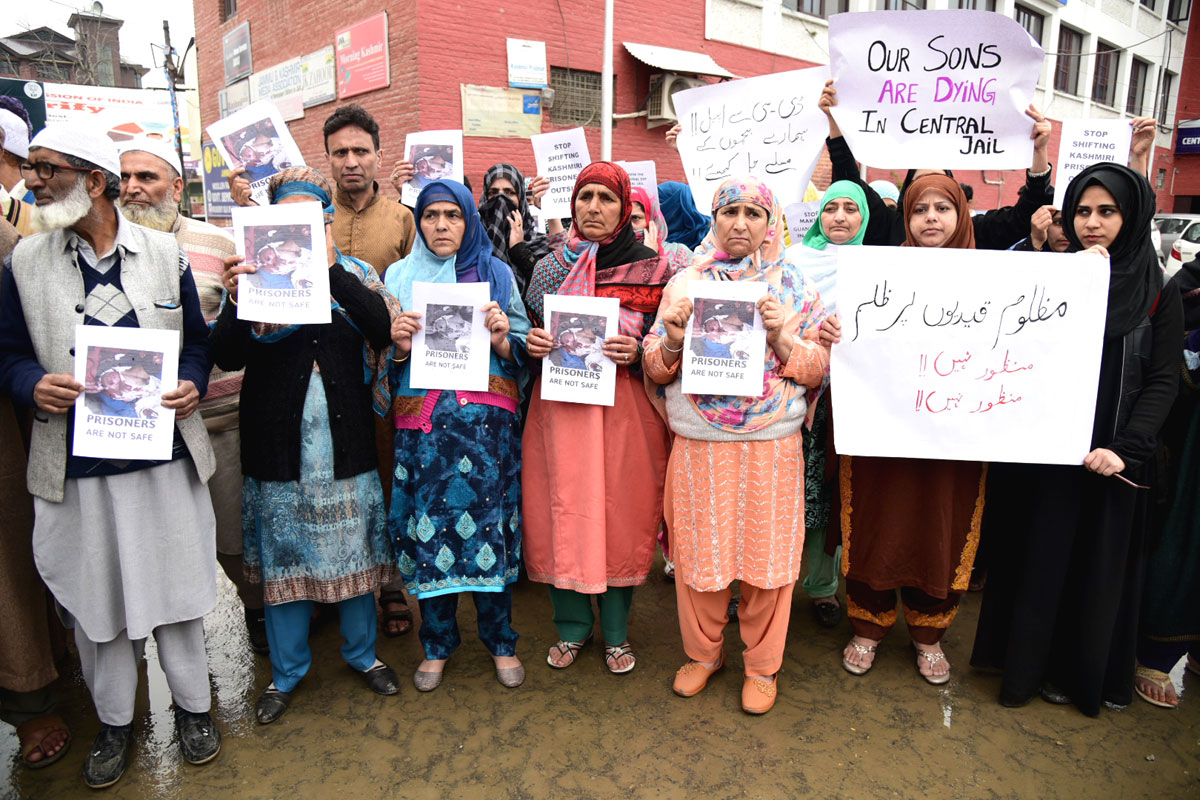
Initially, in 2020, the government lifted PSA charges against more than 150 detainees after the outbreak of the pandemic based on recommendations from security agencies and district police chiefs. But there was no relief for the prisoners who were jailed under PSA, even though the Supreme Court has issued guidelines for decongesting jails. That day, the doctor was happy but it proved short-lived. “The lawyer told me that under this order any criminal can be released but not the prisoners who are arrested under UAPA, PSA or are under the custody of NIA.” This was even authenticated by a panel constituted by the judiciary that PSA-detainees do not fall under the decongestion order of the Supreme Court.
Ruwa Shah, presently studying TV and Cinema in Turkey, has her father, Altaf Shah, 63, suffering from hypertension and diabetes, in jail since July 2017. The family moved an application for bail but it did not happen. Then they filed an application to get him treated, which was accepted. “The court issued an order on June 1, 2020, but still the jail authorities did not take him to the doctor,” Ms Shah alleged. “He needs specialist treatment like neurological and endocrinology. But the jail authorities are saying he is fine and doesn’t require treatment. They are denying treatment not only to my father but to others as well. Peer Saifullah was operated for brain tumour four years back but he too is denied treatment when he on life-saving drugs.”
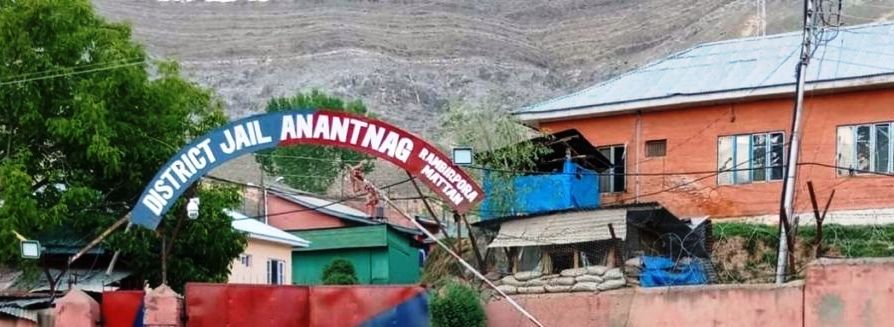
She has met her father on February 21, 2020. After the pandemic halted physical visits, a 3-4 minute phone weekly phone call is the only contact. When her mother, a cardiac patient gets a call, she gets a call to Turkey.
The outbreak of the coronavirus has spread anxiety among hundreds of families of Kashmiri political prisoners. “We fear we may not see our loved ones again,” Ruwa said in a tone of hopelessness. “Trust me it feels as if we are waiting that they will call us from the jail and say something has happened to my father.”
Jails Within
Jammu and Kashmir has 14 jails, where according to former Director General Prisons, VK Singh, 4650 prisoners are held. These include 884 in Kot Balwal in Jammu and 612 in Central jail Srinagar. Officials said they do not have any Covid-19 positive case in any jail where 4550 people are jailed.
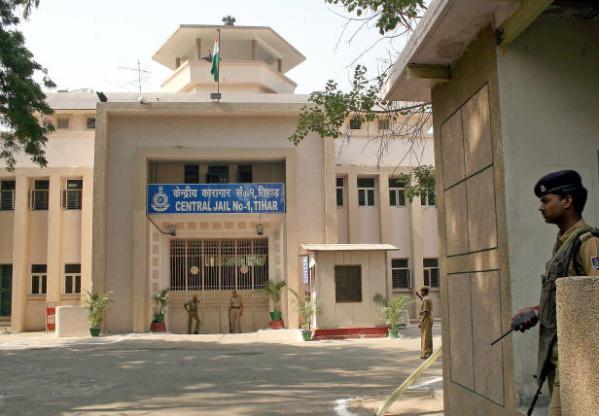
Since many of the prisoners were released on parole in 2020 but they returned back early this year. The occupancy rate of inmates in Jammu and Kashmir is 112 per cent, which is much lesser than the national occupancy rate.
Authorities have avoided releasing prisoners on parole even when their immediate family members died. After fighting cancer for years, separatist Ayaz Akbar’s wife died on April 14. He was not given a chance to see her dead.
A Lawmaker
Among the jailed includes the most vocal, two-time lawmaker Engineer Rasheed who is believed to be in Tihar. Back home in Langate, his eldest son Sheikh Abrar, a college student, believes that his father always lived and raised voice for the common masses which ultimately landed him in jail in August 2019.
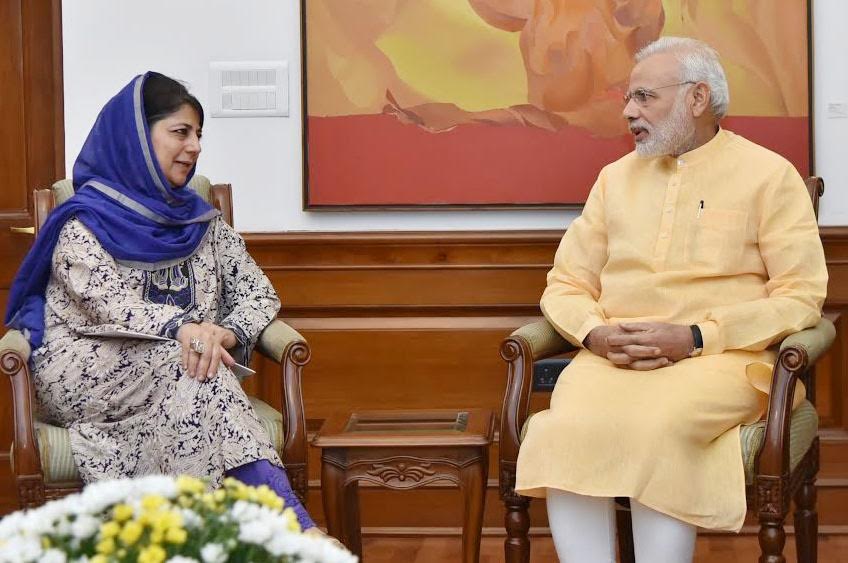
“My father is suffering from asthma. He was already on Rotocaps. After the spike of Coronavirus in Delhi we are very much worried for his health,” Abrar said. His last visitor was his brother in February 2020. “We are not even sure if he has his medicines. We sent him money twice so that he could purchase his medicines but he said he did not receive any,” Abrar said. They do have a 4-minute weekly call contact.
Three Covid Spots
Presently the three largest prison facilities, Tihar Central Jail, and Mandoli and Rohini prisons in Delhi have become hotspots for COVID-19 with over 500 inmates and staff members testing positive since last year.
“Over the past week, the number of cases at these prisons have increased almost five times, as they struggle with overcrowding since most of the 5,000 prisoners, who were released on interim bail or special parole last year due to the pandemic, have since returned,” reported The Wire on April 14. “At the three jails, 190 inmates have tested positive so far, while two have died due to the novel coronavirus. The pandemic has also impacted the jail staff, and so far 304 of them have tested positive while 11 of them are in the active category.”
Post-Sehraie
After the death of Ashraf Sehraie, the political class has started seeking the release of these prisoners on the mere grounds of the pandemic.
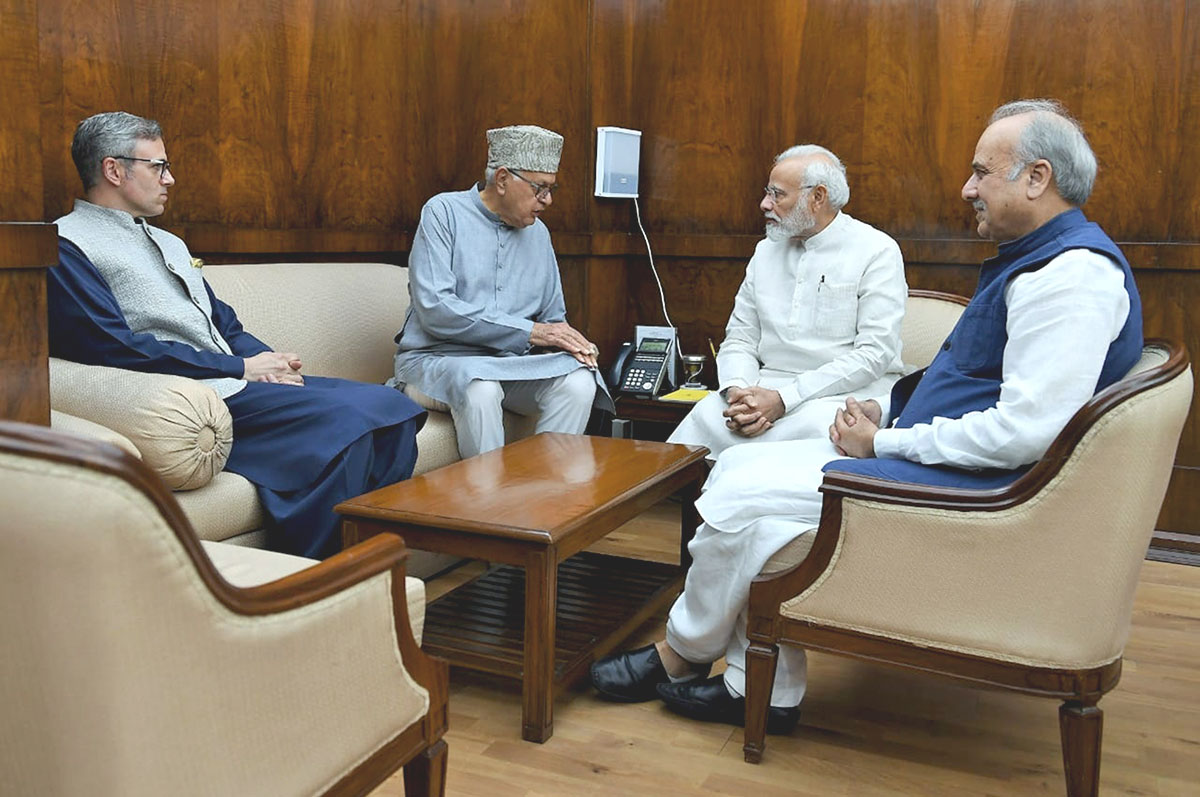
“Death of Mohammad Ashraf Sehrai brings home the point that the government must ensure the wellbeing of Kashmiri prisoners lodged across jails in the country,” Dr Farooq Abdullah was quoted saying in media. “Their families are worried. In times of pandemic and at other times, they deserve to know that their loved ones are safe and healthy.”
Farooq’s successor, Mehbooba Mufti, however, wrote a letter to the Prime Minister seeking the transfer and release of Kashmir prisoners.
“As far as Kashmir is concerned, it is no secret that hundreds, or may be thousands of detainees and political prisoners arrested since August 2019 continue to languish in jails both in and outside J&K. Most of them are detained under preventive laws and don’t face any prosecution. Many continue to be held even after courts granted them bail. The most recent reminder of the lurking threat to their lives is Mohammad Ashraf Sehrai’s death who lost his life because he contracted COVID in jail and was deprived of medical care,” the letter said. “Throughout the world, most countries have released prisoners on parole in view of the alarming COVID crisis. A democratic and civilized country like India shouldn’t drag its feet and must release these detainees immediately so that they can return home at a time when life feels so threatened. I hope you will give due consideration to this matter and order their release.”















